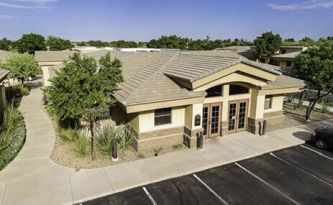Recurrent Pregnancy Loss
Recurrent Pregnancy Loss / Recurrent Miscarriage

Recurrent pregnancy loss (RPL), or repeat miscarriage, is a frustrating and emotionally devastating problem. Reproductive specialists debate over how to define RPL, but we generally use the term to describe a history of two or more pregnancy losses, including biochemical pregnancies and ectopic pregnancies.
Even though most women with a history of two miscarriages will go on to have a successful pregnancy and delivery without any medical intervention, the chances of a repeat miscarriage increase slightly after two consecutive losses and more sharply after three.
We therefore want to be absolutely certain that all patients with a history of RPL are taken seriously and offered thorough evaluation, treatment, and emotional support.
Miscarriage and Chromosome Abnormalities
A vast majority of miscarriages are due to developmental problems in the pregnancy itself.
Sporadic chromosome abnormalities occurring by chance account for 60-70% of pregnancy failures and become more frequent as women enter their mid to late 30’s.
Most chromosomally abnormal conceptions are not compatible with life and fail to implant at all. However, some chromosomally abnormal conceptions can result in pregnancy, miscarriage, and, much less frequently, the live birth of an affected child.
When a woman suffers a miscarriage, we do not always have an opportunity to confirm that the pregnancy was chromosomally abnormal because chromosome analysis requires careful collection and preservation of the pregnancy tissue after a spontaneous loss or dilation and curettage (D&C).
Often, we just have to assume that the pregnancy was chromosomally abnormal, since this is the primary cause for miscarriage across all age groups, especially in women older than 35.
Chromosome testing has two advantages.
It will tell you the chromosome make-up of the pregnancy, letting you know if the chromosomes were normal or not and, if abnormal, whether it was due to a spontaneous chromosome abnormality or one that was carried by either of the parents.
Arizona Center for Fertility Studies does not routinely recommend chromosome testing on the first miscarriage unless the couple wants to know the reason why the pregnancy was lost.
However, if a woman has already had one or more losses, then our team feels strongly that she should be given the option of doing chromosome testing on the products of conception (POC) because the results can explain why the pregnancy did not continue, and indicate whether or not a work-up for non-chromosomal causes of pregnancy loss could be in order.
Other Causes for RPL
Outside of sporadic chromosome abnormalities, there are multiple risk factors and conditions that can predispose a woman to pregnancy loss. ACFS will thoroughly evaluate its patients with RPL to ensure that none of the following causes are missed:
- Uterine anatomical factors - fibroids, polyps, uterine adhesions (synechiae or scar tissue), adenomyosis, and congenital uterine abnormalities (e.g. septate/bicornuate uteri)
- Endocrine/hormonal factors - estrogen/progesterone deficiencies, thyroid abnormalities, prolactin excess, and diabetes/insulin resistance
- Infections - chronic endometritis (inflammation of the lining of the uterus) and pathologic mycoplasma/ureaplasma carriage
- Genetics - Parental balanced chromosome translocations (these lead to a higher probability of chromosomally abnormal conceptions), MTHFR deficiency (poor folic acid metabolism), Factor V Leiden deficiency, and prothrombin gene mutation
- Vascular/clotting disorders - Factor V Leiden deficiency, prothrombin gene mutation, anti-phospholipid antibody syndrome (APS), protein C and S deficiency, and elevated homocysteine
- Immune conditions - thyroid autoimmunity, Celiac disease, systemic autoimmune diseases (e.g. Lupus), and possibly other immune conditions/incompatibilities that lack a scientifically proven connection at this time
Evaluation and Treatment of RPL
We evaluate RPL with a thorough review of each patient’s history, pelvic ultrasound and saline sonohysterography, serum and urine testing, cervical/vaginal cultures, and endometrial biopsy as appropriate. Treatment is aimed at the suspected underlying problem and may include:
- surgical correction of uterine anatomical factors
- superovulation with fertility medications and luteal phase support to foster a better hormonal environment
- treatment of infections or immunologic disorders
- antiplatelet and/or anti-clotting treatment in the case of known or suspected clotting disorders
- IVF with preimplantation genetic testing (PGT) to prevent the most common cause of miscarriage—chromosomally abnormal pregnancy
In more extreme cases, IVF with donor eggs or a gestational carrier may provide an opportunity to have a child by overcoming severe egg or uterine factors that have led to repeated miscarriages in the past. Donor sperm may also be considered if the male partner carries a chromosome abnormality that is likely to result in chromosomally abnormal conceptions and miscarriage.
Too often, women who suffer through multiple miscarriages are told to “just keep trying.” With the advanced diagnostic and treatment options now available to our patients, women should not have to count on luck that their next pregnancy will be ok.
Request Your Consultation Today!
If you want to learn more about recurrent pregnancy loss, call your ACFS fertility team today at (480) 860-4792.











